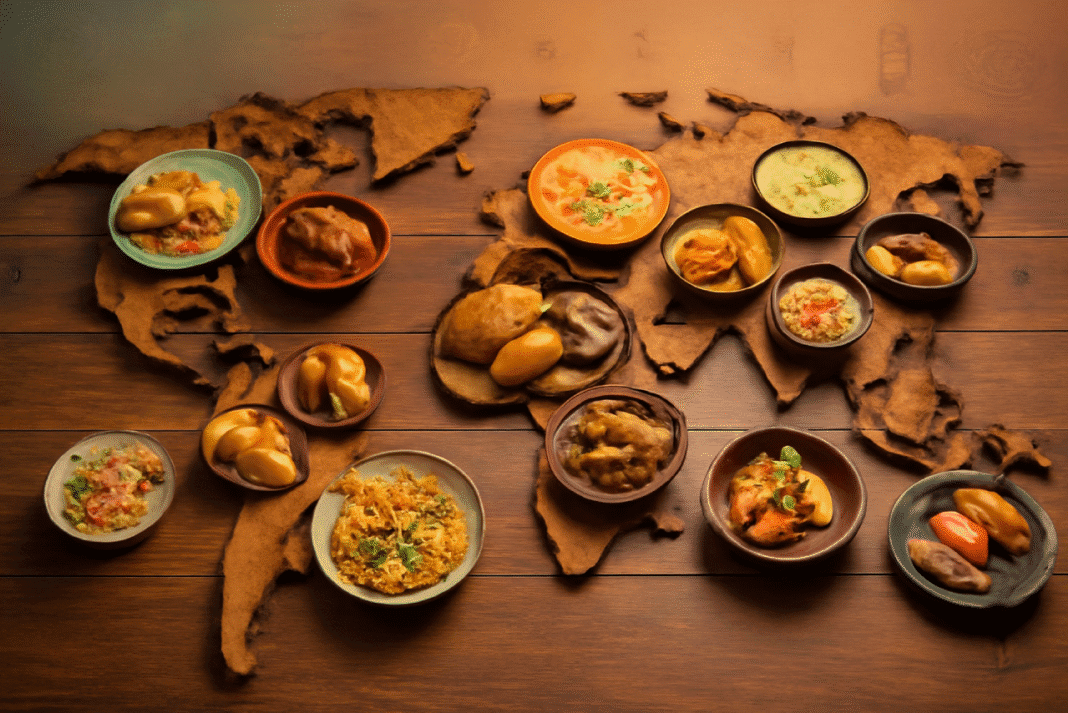In a world as diverse as ours, food has always been a powerful connector—telling stories of culture, history, migration, and identity. Every region holds its own unique culinary treasures, many of which have transcended borders to become global icons across the world. From the bustling street stalls of Bangkok to the rustic kitchens of Tuscany and the vibrant spice markets of Marrakesh, here is a journey through some of the world’s most celebrated cuisines, each representing a distinct corner of the world.
Thailand (Southeast Asia): Bold, Balanced, and Unmistakably Thai
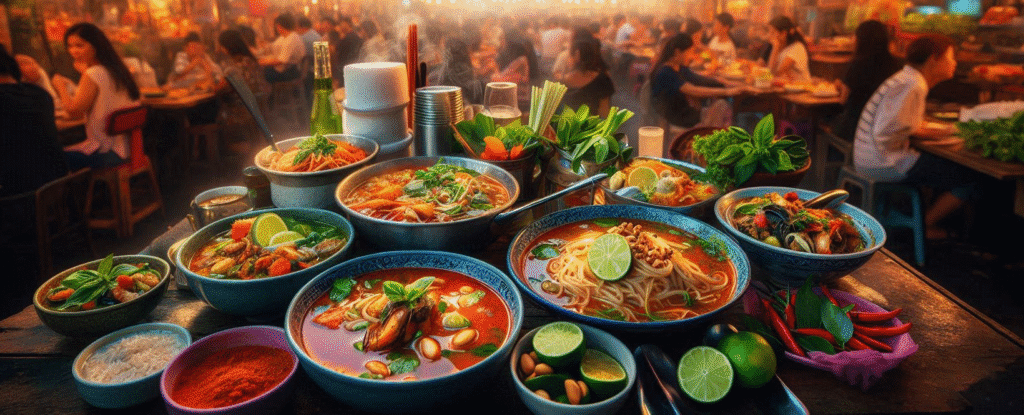
Thai cuisine is a harmonious marriage of sweet, sour, salty, spicy, and bitter. Across the world adored dishes like Pad Thai, Green Curry, and Tom Yum Soup showcase the delicate balancing act that defines Thai cooking. Aromatic herbs like lemongrass, kaffir lime leaves, and galangal lend depth, while fish sauce and palm sugar create an umami-rich base that makes every bite linger.
Italy (Southern Europe): The Soul of Simplicity
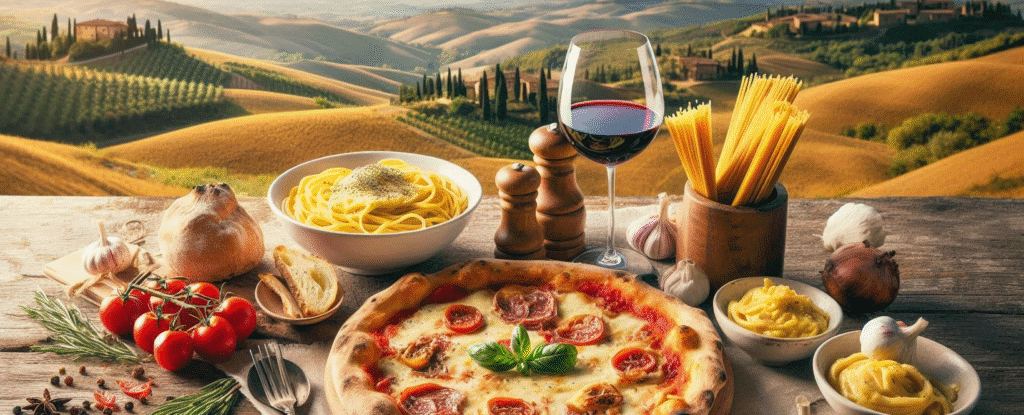
Italian cuisine is less about elaborate technique and more about quality ingredients prepared with love. Whether it’s a perfectly wood-fired Neapolitan pizza, a silky carbonara from Rome, or the earthy richness of risotto alla Milanese, Italian food speaks the language of the land all across the world. What makes it universal is its soulfulness—food that comforts, connects, and celebrates tradition.
Mexico (North America): Where Spice Meets Soul
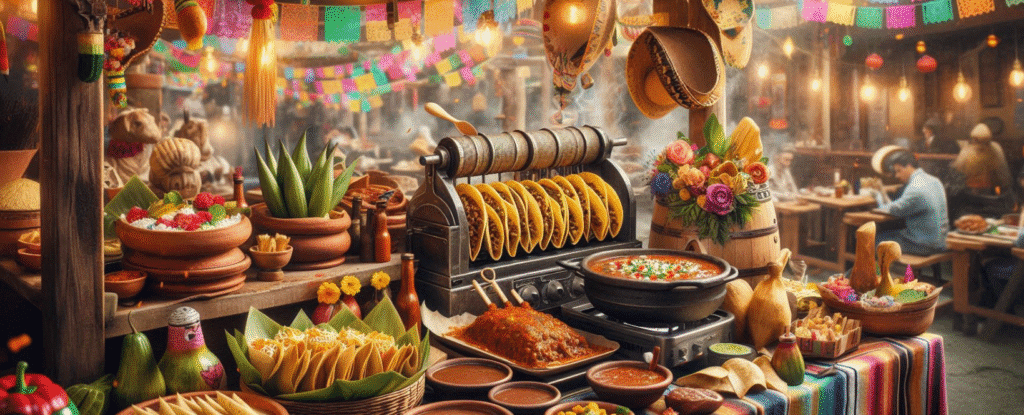
From ancient Mayan and Aztec influences to Spanish colonisation, Mexican cuisine is a tapestry of flavours and textures. Tacos al pastor, mole poblano, and tamales are just a glimpse of its depth. Corn, beans, chilli, and avocados form the base, while each region tells its own flavour story—Oaxaca’s moles, Yucatán’s citrus marinades, and Puebla’s stuffed chillies spreads flavors of this land to the world.
Morocco (North Africa): A Fragrant Feast of Culture
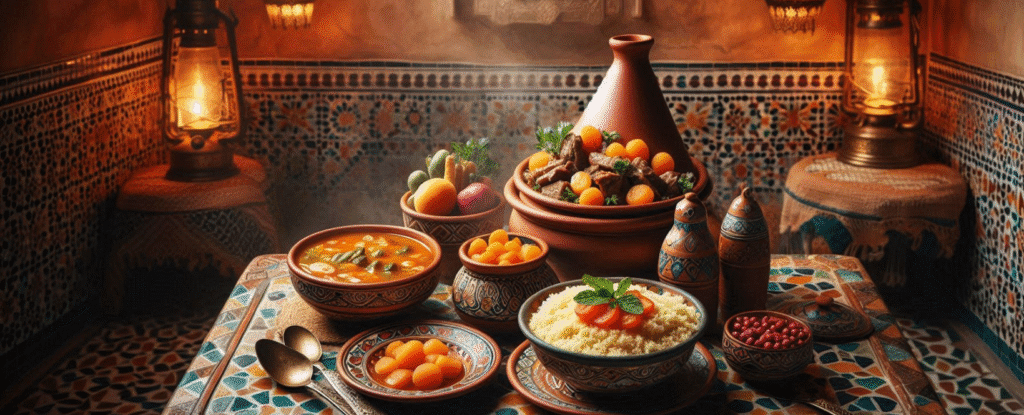
Moroccan food is a poetic interplay of spices and slow-cooked comfort. Tagines simmered with dried fruits and preserved lemons, couscous delicately steamed over broth, and harira soup during Ramadan define its culinary identity. A legacy of Berber, Arab, French, and Moorish influences, Moroccan cuisine carries the perfume of cinnamon, saffron, and cumin in every dish.
Japan (East Asia): Purity and Precision on a Plate
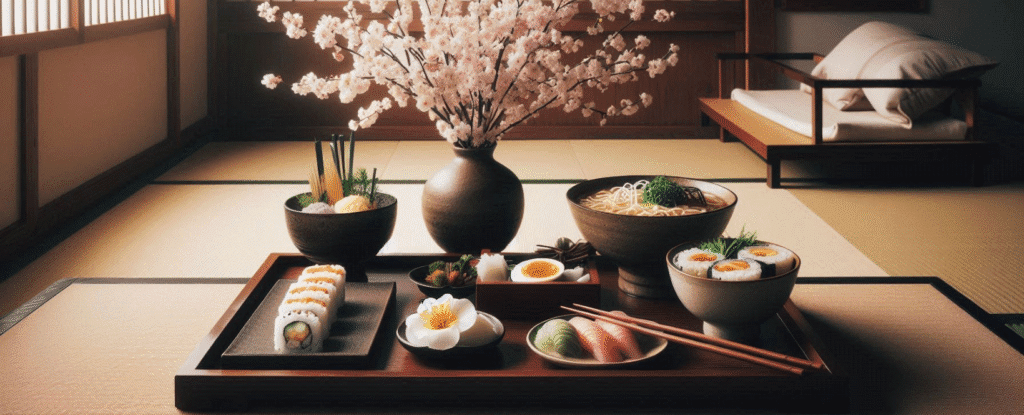
Japanese cuisine reflects a culture of precision, respect, and minimalism. The freshness of sushi, the umami depth of ramen, the artistry of kaiseki, and the comfort of tonkatsu reflect its diversity. Presentation is paramount, as is seasonality. Every dish is both a flavour and visual experience, echoing the Japanese philosophy of harmony with nature.
France (Western Europe): Culinary Elegance and Global Influence

No list of global cuisines is complete without the elegance of French cooking. From buttery croissants and crusty baguettes to rich coq au vin and luxurious béchamel, French cuisine has shaped fine dining worldwide. It’s a cuisine of discipline and technique, and yet deeply regional—Provençal herb-forward dishes contrast sharply with the cream-heavy fare of Normandy.
India (South Asia): A Symphony of Spices and Diversity
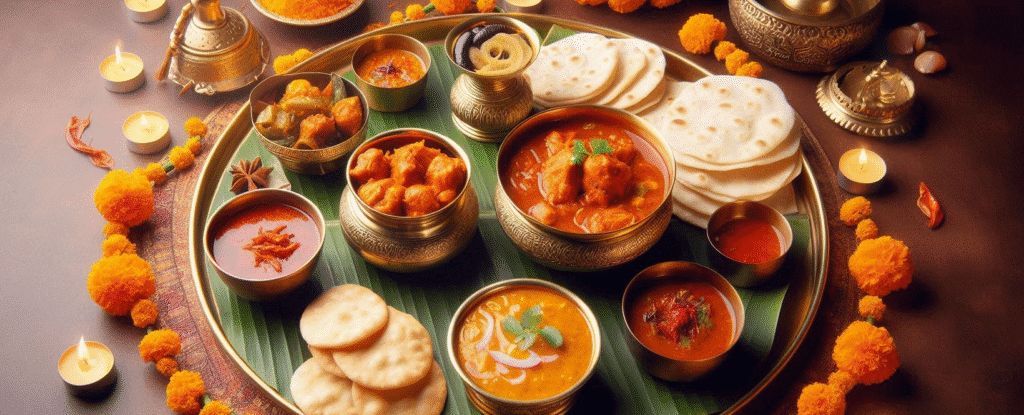
Indian cuisine is a continent in itself. Each region contributes something distinct—Punjabi butter chicken, Tamil rasam, Bengali mustard fish, and Gujarati undhiyu. Spices aren’t just flavouring agents here—they’re storytellers. With layers of aroma, heat, texture, and colour, Indian food is as diverse as its people, shaped by history, religion, and tradition.
Peru (South America): Where Mountains, Sea and Culture Collide
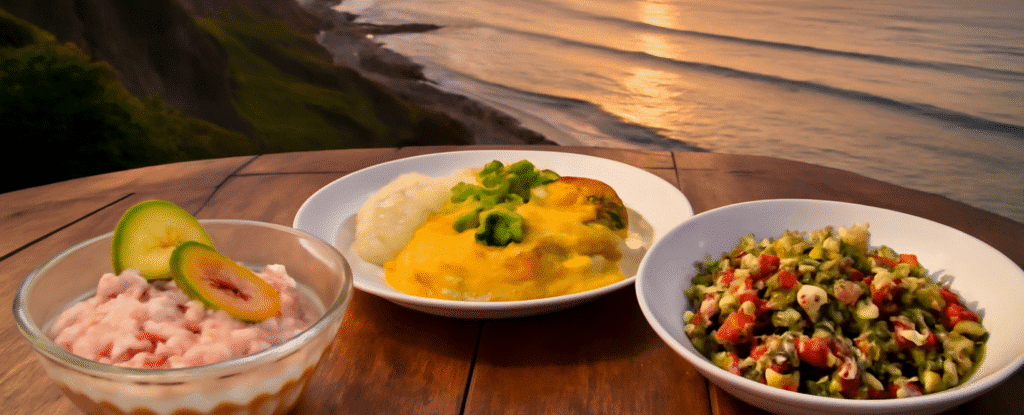
Peruvian cuisine is one of the most exciting culinary movements of the last decade. With indigenous, Spanish, African, and Asian influences, its star dish—ceviche—is just the beginning. Ingredients like quinoa, aji peppers, purple corn, and Amazonian fruits bring vitality and uniqueness. Chefs in Lima are leading a renaissance, making Peru a gastronomic capital of the world.
Lebanon (Middle East): The Generosity of the Table
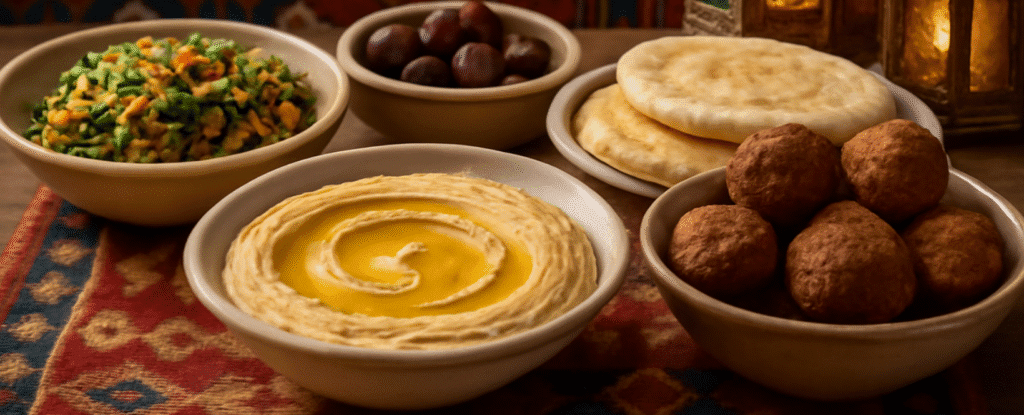
Lebanese cuisine embodies warmth, generosity, and a deep respect for fresh, seasonal ingredients. Meals are often mezze-style—hummus, baba ghanoush, tabbouleh, and falafel—followed by grilled meats and fragrant rice dishes. Olive oil, lemon, garlic, and herbs define the flavour profile. It’s food that invites conversation, community, and a deep appreciation for hospitality.
South Korea (East Asia): Fermented, Fiery, and Ferociously Good
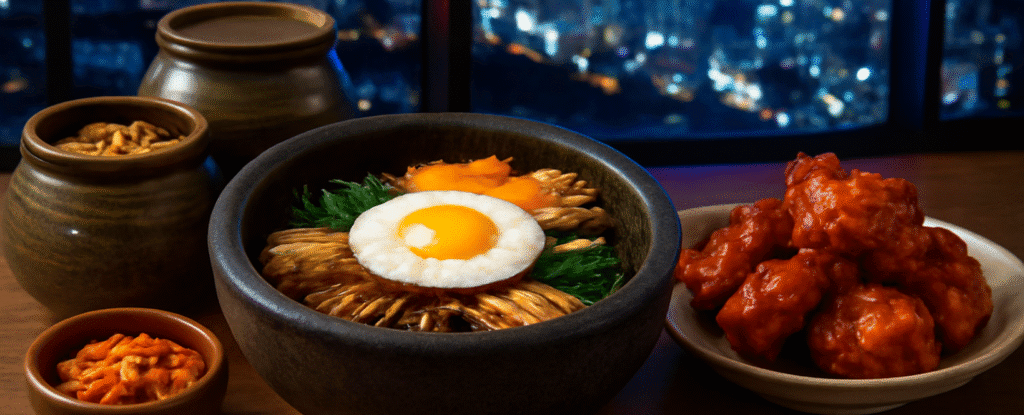
From the global success of bibimbap and Korean fried chicken to the cultural phenomenon of kimchi, Korean cuisine is dynamic, vibrant, and bold. Rooted in fermentation and seasonal preservation, it balances spice, umami, and acidity. Meals are communal, structured around shared plates that reflect harmony and variety.
In Every Dish, a World of Meaning
Food is far more than sustenance—it is memory, ritual, identity, and pride. As these diverse cuisines continue to cross borders and influence each other, they remind us of our shared humanity. In a time of global division, it’s at the dining table that we often find our deepest connections.
Whether you’re dipping crusty bread in Moroccan tagine or twirling Italian pasta in a candle-lit trattoria, every bite is a passport to somewhere extraordinary.


